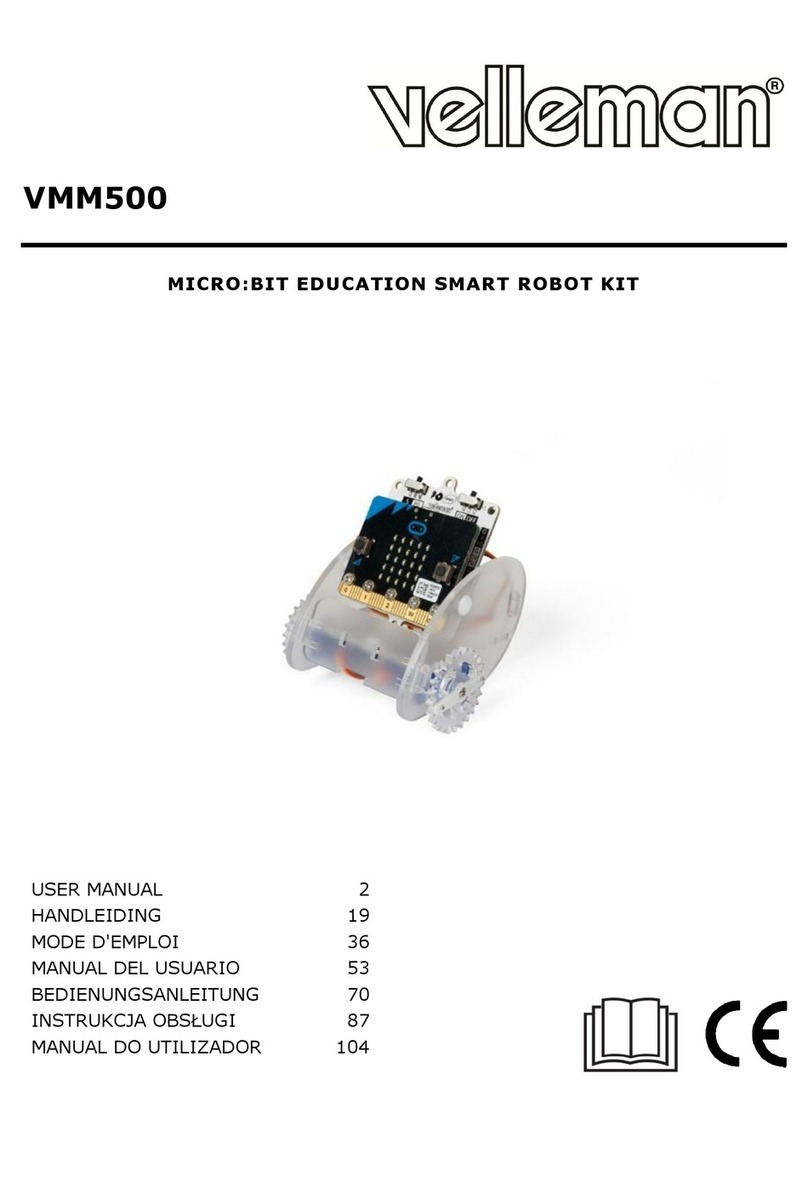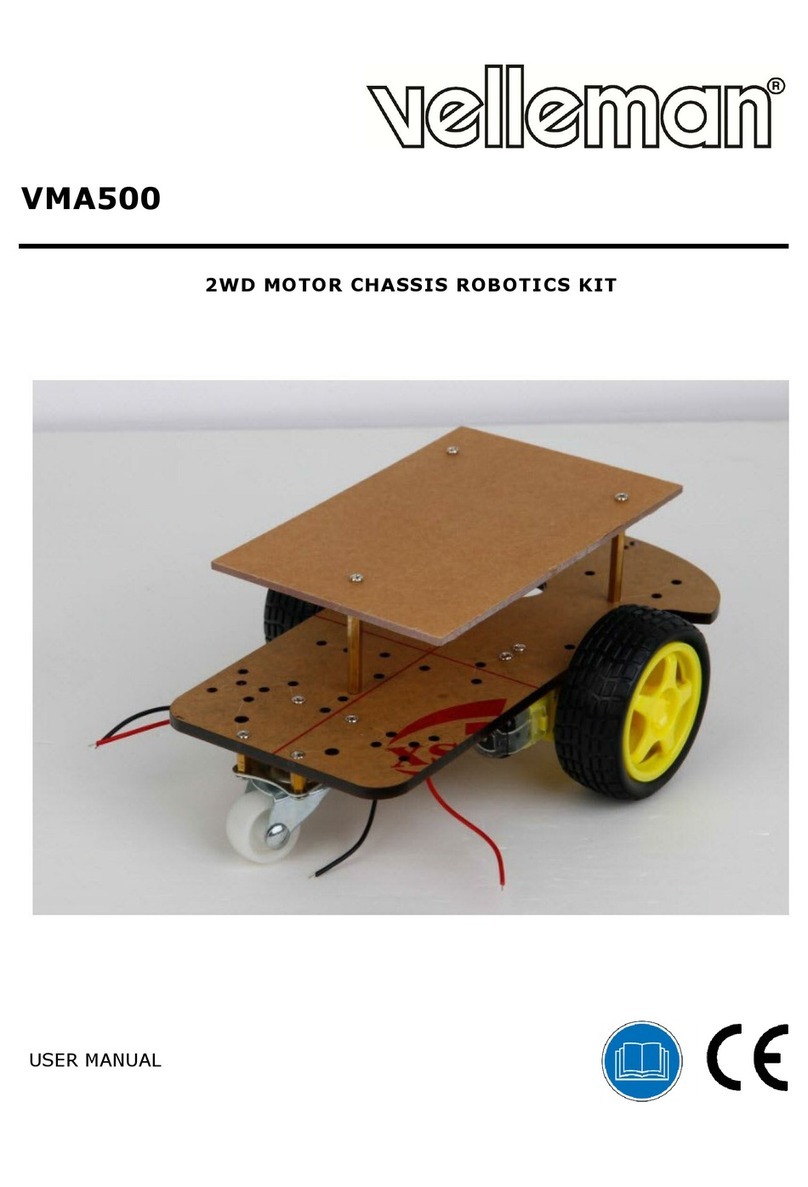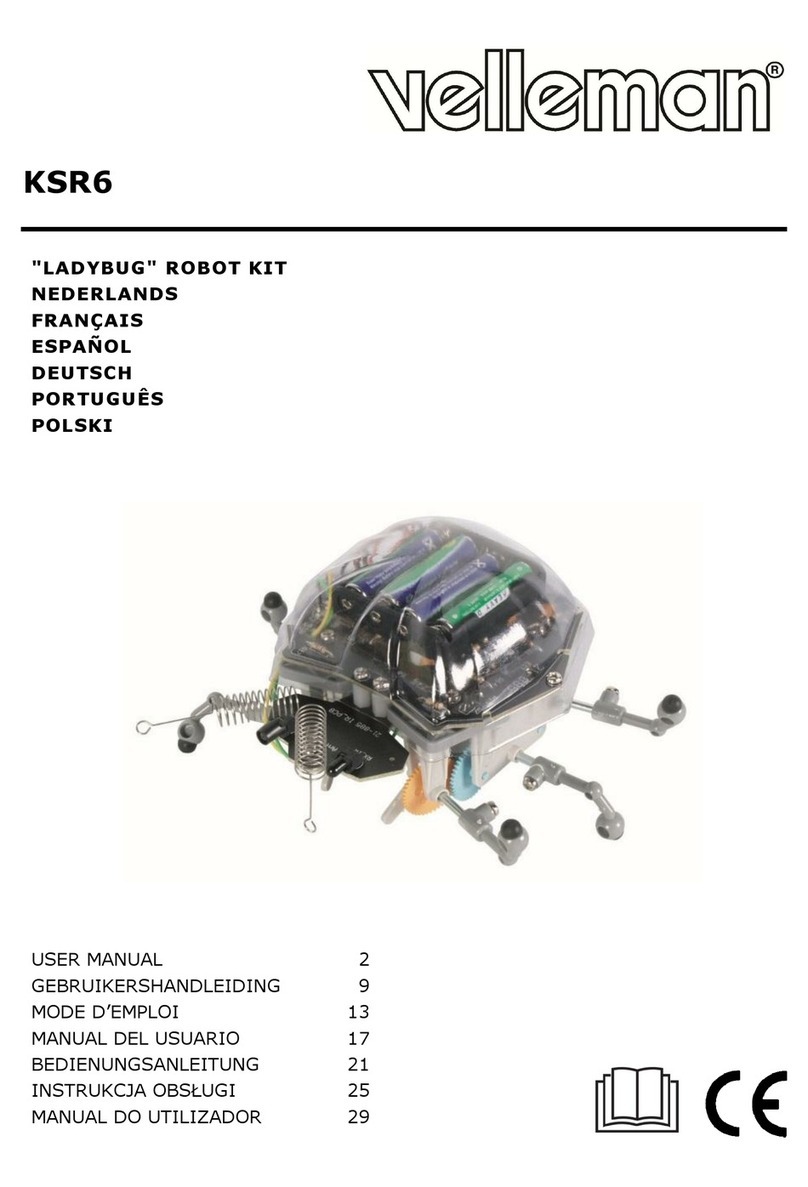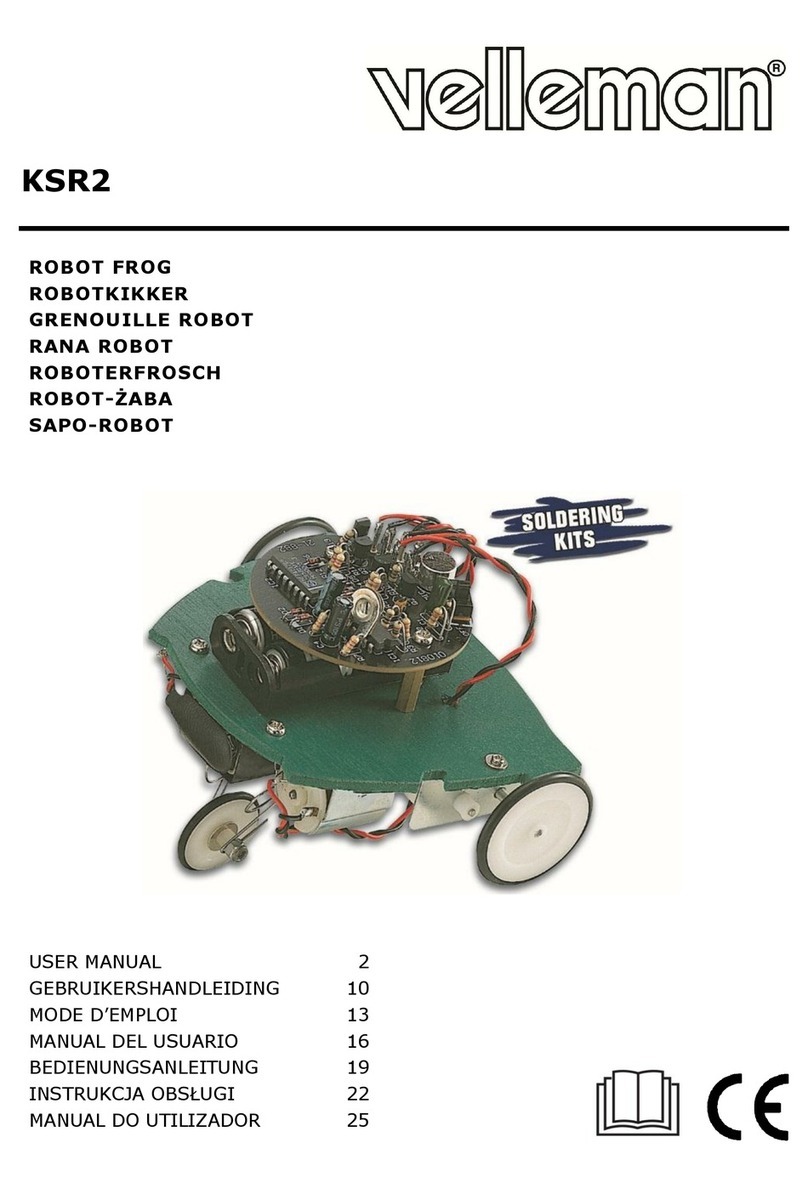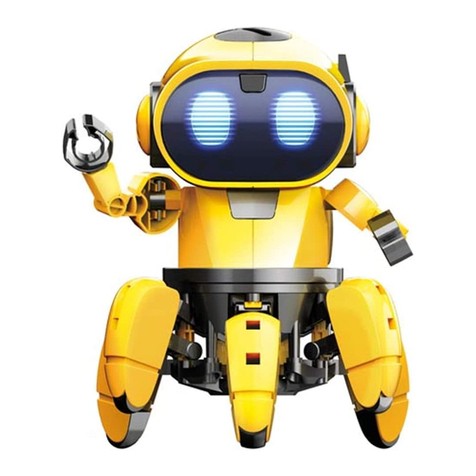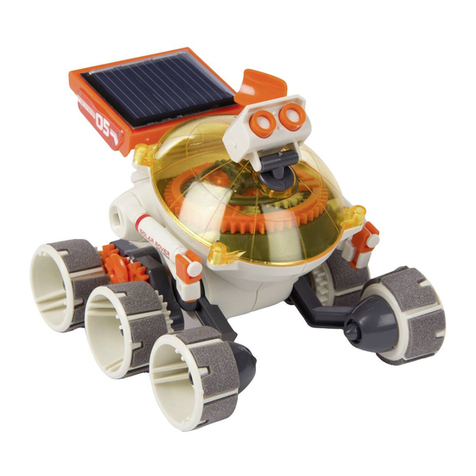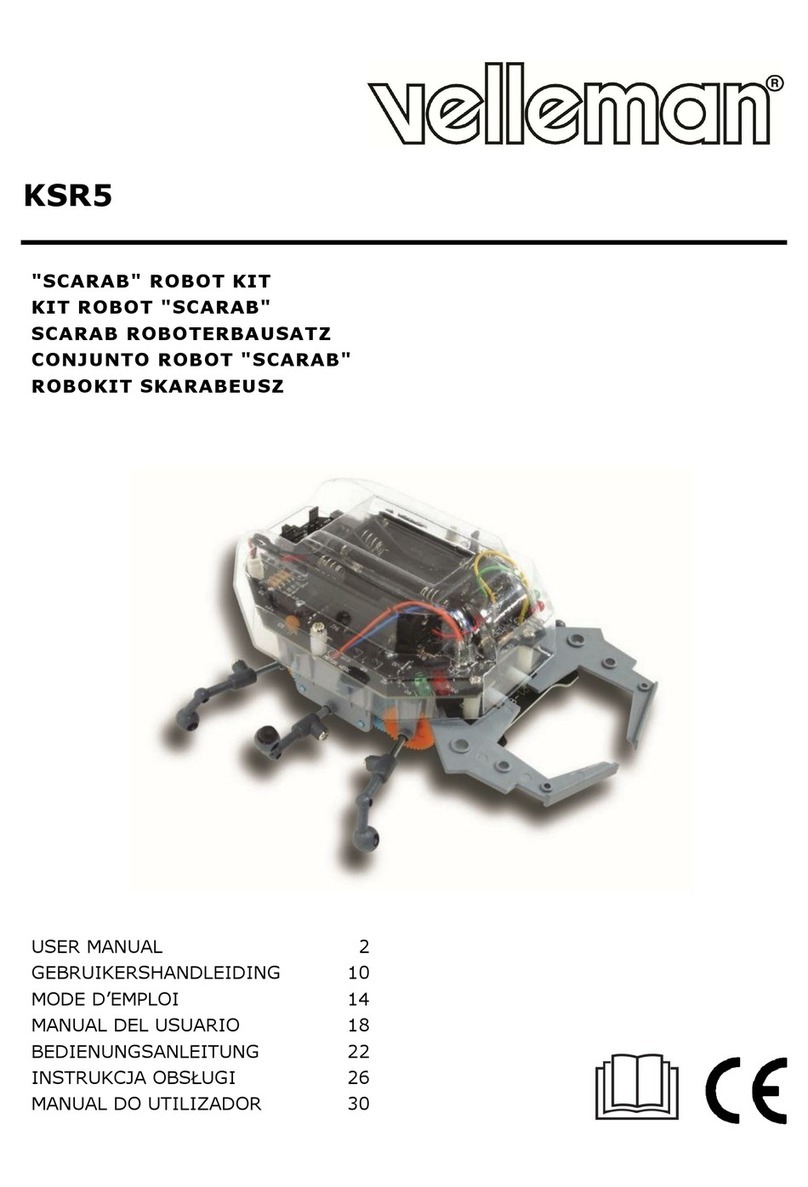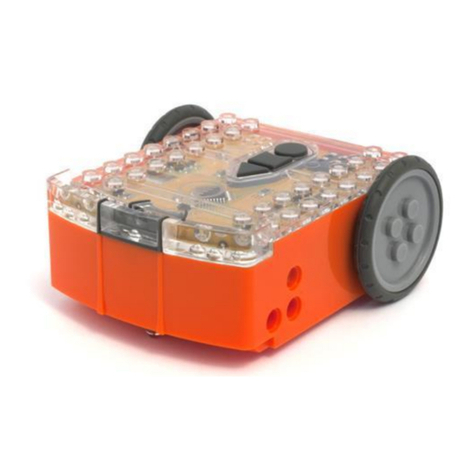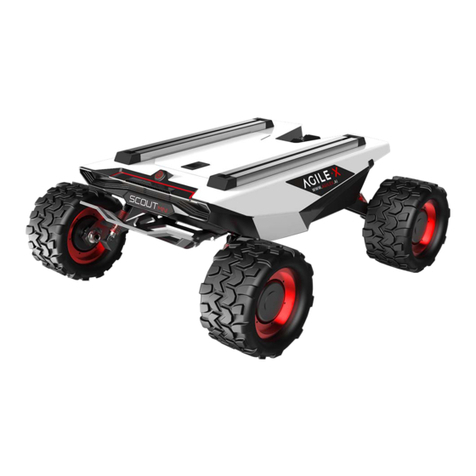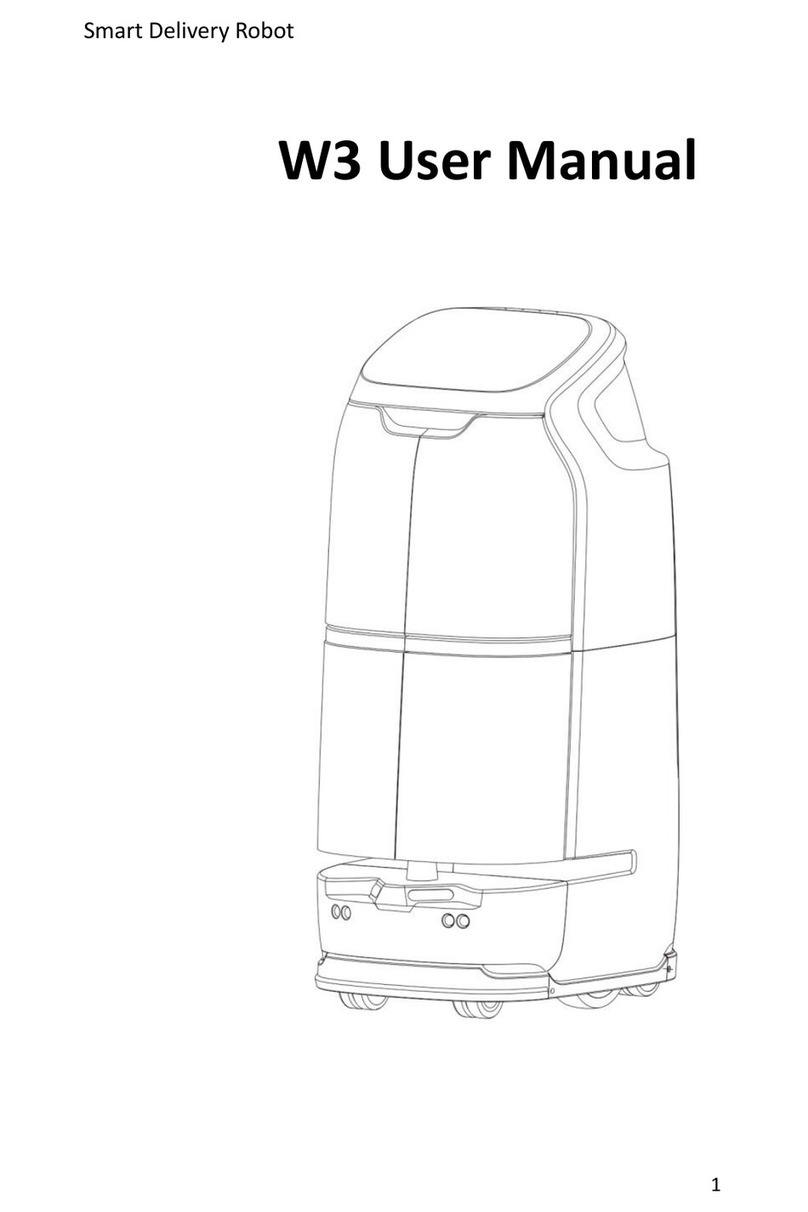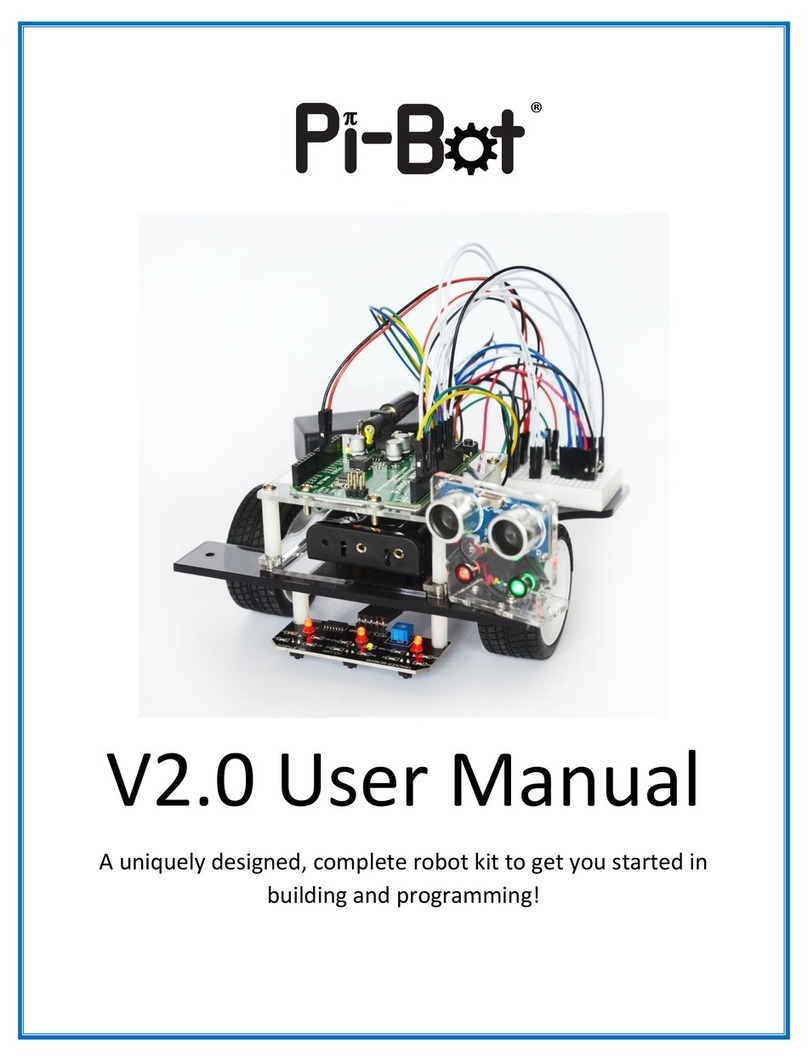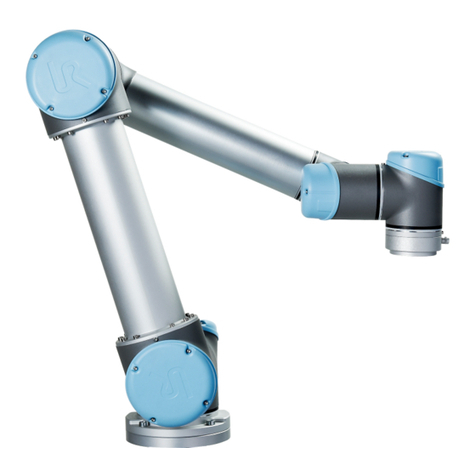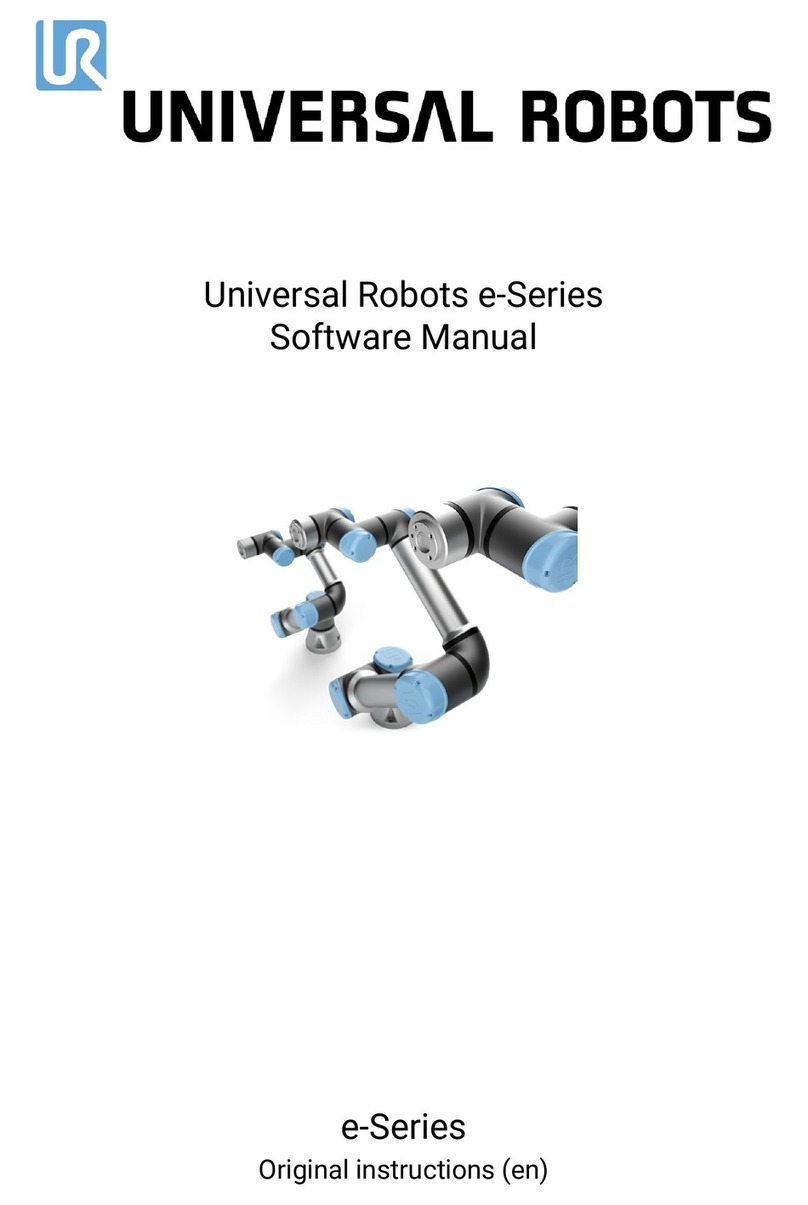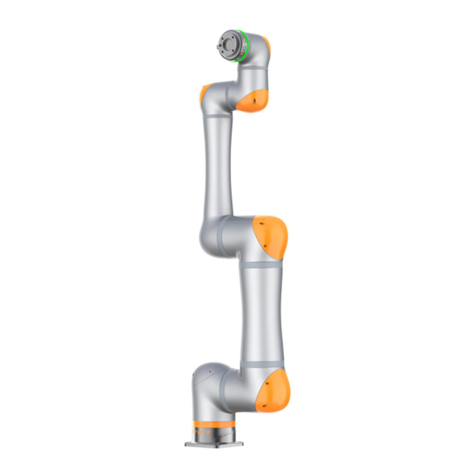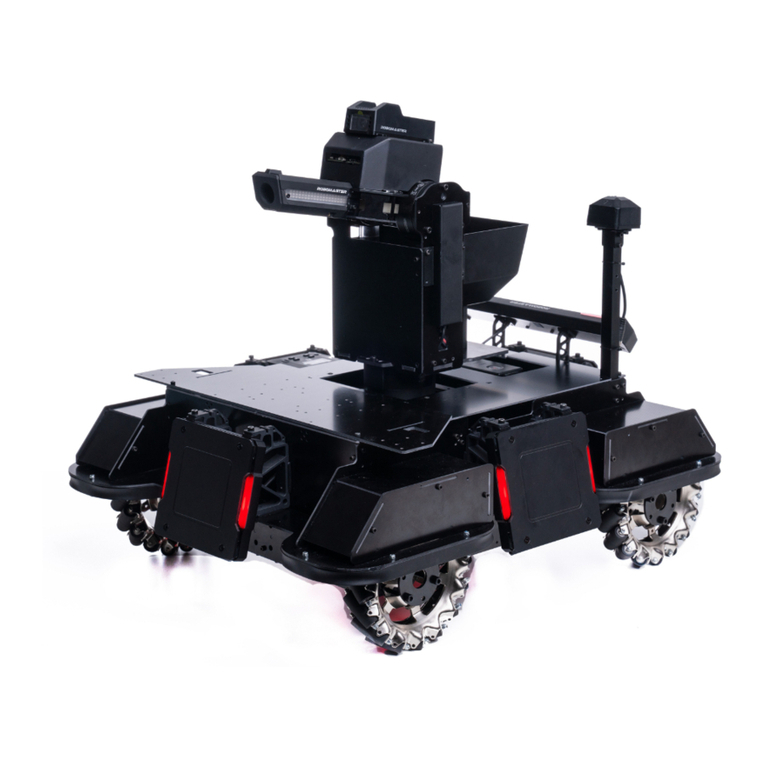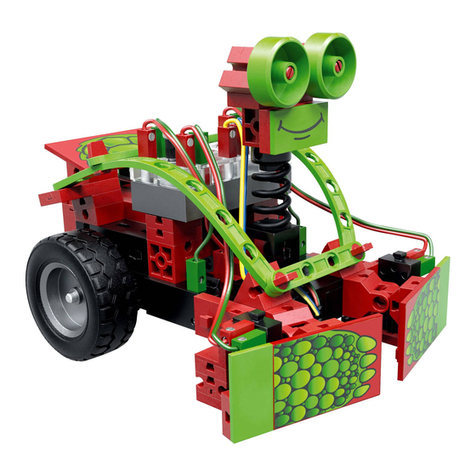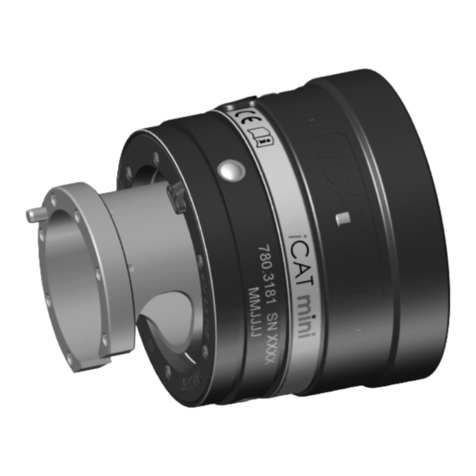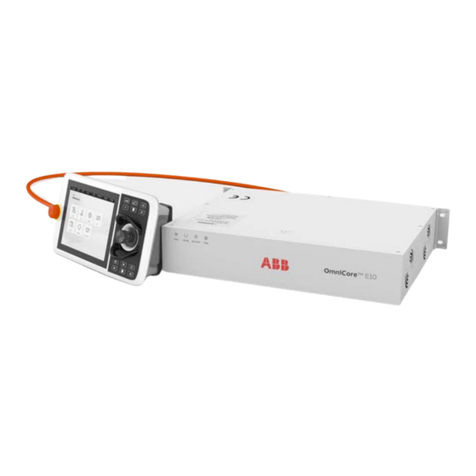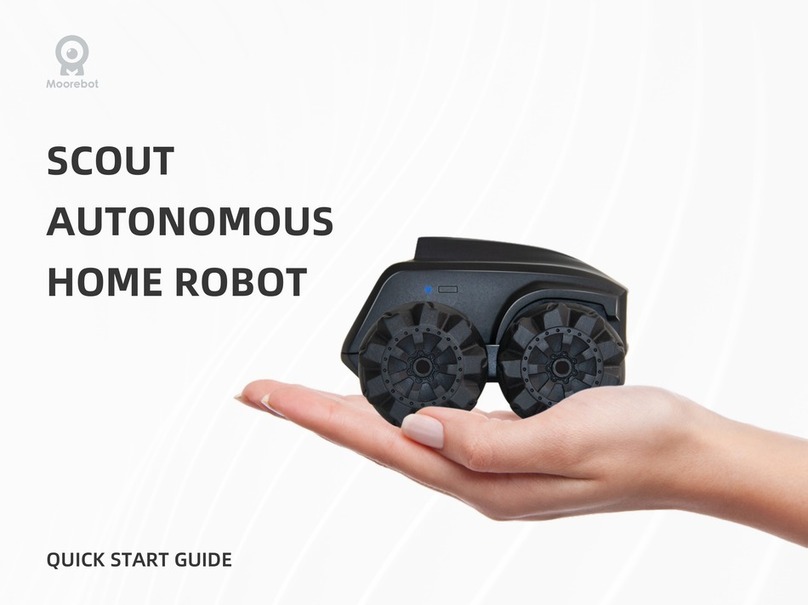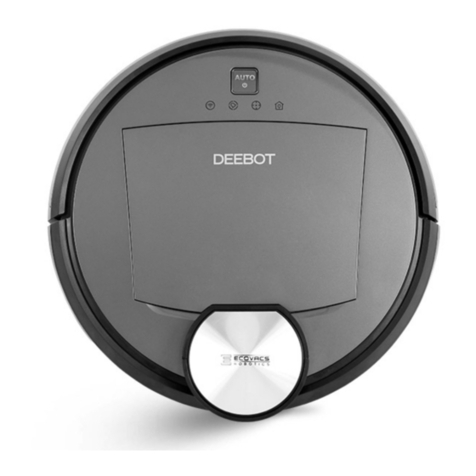
KSR1 VELLEMAN8
5. Bediening
Stel de schakelaar in de “ON”-stand. Plaats de KSR1 op de grond en ga na of het toestel vlot beweegt. De KSR1
moet achteruit en naar links rijden wanneer u in uw handen klapt. Vervolgens rijdt de KSR1 opnieuw rechtdoor. Pas
de gevoeligheid van de microfoon aan met een schroevendraaier (“VR”-regeling). Draai naar rechts omde
gevoeligheid te verhogen en omgekeerd.
6. Problemen en oplossingen
1. Ga na of alle componenten op de PCB op de juiste plaats zitten. Besteed de nodige aandacht aan de polariteit
van de microfoon, de transistors en de condensatoren.
2. Controleer de bedrading.
3. Wijzig de positie van de nylon moer (n°17) van het voorwiel indien het toestel altijd naar links afwijkt.
4. Het lawaai van de tandwielkast kan de microfoon hinderen bij de detectie van het signaal. Smeer tandwiel
36T/14T (wit) en de metalen as (n°3) omhet lawaai te verminderen.
5. Volgende onderdelen mag u NIET smeren : metalen as (n°4) en tandwielen 36T/0T (wit) en 36T/14T (rood)
7. Bedradingsschema (zie fig.10 op blz. 6)
Opmerking : De inhoud en de specificaties van deze handleiding kunnen worden gewijzigd zonder
voorafgaande kennisgeving.
KSR1 – VOITURE ROBOT
1. Introduction & caractéristiques
Nous vous remercions de votre achat !Lisez le manuel attentivement avant de prendre votre KSR1 en service.
Cette voiture à commande vocale utilise un microphone en tant que détecteur. La voiture change de direction quand le
détecteur capte un bruit ou quand la voiture touche un objet. La KSR1 est alimentée par 2 piles LR6 de 1.5V (non incl.).
2. Pièces électroniques (voir fig.1 à la p.2)
3. Liste des pièces mécaniques
Pièce Quant. Description Pièce Quant. Description
1 1 boîte d’engrenages 15 1 ressort
2 1 moteur DC3V 16 1 support de montage roue avant
3 1 axe métallique (2 x 40mm) 17 2 écrou en nylon
4 1 axe métallique (3 x 90mm) 18 1 embout(Ø3 x 2mm)
5 1 satellite 10T (blanc) 19 2 rondelle de serrage (2.6 x 6 x 0.5mm)
6 1 pignon 36T/14T (blanc) 20 2 rondelle de serrage (3.2 x 10 x 0.5mm)
7 1 pignon 36T/0T (blanc) 21 4 vis (2 x 10mm)
8 1 pignon 36T/14T (rouge) 22 6 vis (3 x 5mm)
9 1 pignon 36T/14T (vert) 23 3 vis (3 x 18mm)
10 2 canon en nylon 24 1 vis (3 x 20mm)
11 2 pneu en caoutchouc (Ø30 x 3mm) 25 4 écrou M2
12 1 pneu en caoutchouc (Ø15 x 2.5mm) 26 4 écrou M3
13 1 roue avant (Ø20mm) 27 3 entretoise hexag. (M3 x 10mm)
14 2 roue arrière (Ø32mm) 28 1 embout en nylon (Ø3 x 6mm)
